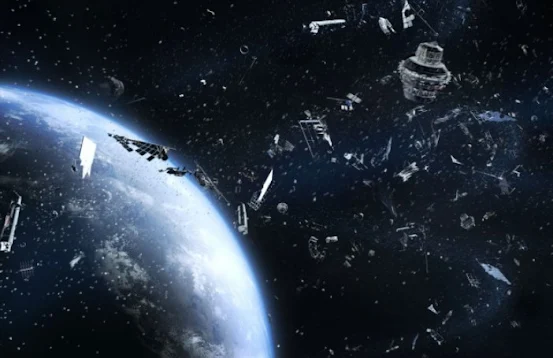 |
| Like a Weapon to Eat Master, Russian Spacecraft Maneuvers to Avoid Space Junk |
Moskow - The Russian cargo spacecraft had to perform unplanned maneuvers to avoid the debris of the space junk. Like a gun, sir, the rest of the space junk turned out to be from the fragments of a Russian satellite that was destroyed in an anti-satellite missile test firing last year.
The Progress MS-20 space shuttle avoids space debris left over from the Kosmos-1408 spacecraft that was destroyed by an anti-satellite missile during a test by Russia.
The Progress MS-20 space shuttle was launched from the Baikonur Cosmodrome on June 3 to deliver supplies to the International Space Station (ISS). But while on the ISS, the Progress MS-20 spacecraft had to perform "unscheduled maneuvers," according to a Telegram update by Roscosmos Chief Dmitry Rogozin.
ISS crew member Sergey Korsakov recorded a brief video as the Progress MS-20 maneuvered, later shared by Rogozin on Telegram. Interestingly, Rogozin pointed to the Kosmos-1408 spacecraft, a satellite launched and operated by the Soviet Union in the early 1980s, as causing the Progress MS-20 to maneuver its thrusters.
This is a rare and direct acknowledgment that Russian space debris was to blame. “I must mention that this is the first time Roscosmos has confirmed that the debris was their fault.
Usually, they say which satellite or rocket to use only if it is an unfamiliar one. If it's Russia, they call it 'space debris',” space reporter Katya Pavlushchenko wrote.
Just like the US, Russia has been a major source of space debris for decades. But in particular, the country's highly controversial anti-satellite missile test last year recalled finding ways to mitigate the growing space junk crisis.
At the time, US Secretary of State Anthony Blinken said Russia had "recklessly" carried out a direct-ascent, destructive test of an anti-satellite missile against one of its own satellites.
Bill Nelson also called it an immoral act that could harm not only American and international partner astronauts on the ISS, but also Russian cosmonauts. "Their actions were reckless and dangerous," he said.
Russian officials, however, claimed the missile "hit the satellite with great precision," and said the fragment would pose no threat to astronauts because the timing of the test was then factored in.
However, that doesn't seem to be the case, judging by this latest maneuver. Even the stakes are very real. Russia reaps what it sows, given the fact that it has to avoid a field of its own creation.
Scientists have long warned that a chain reaction of colliding space debris could flow into a disaster, otherwise known as Kessler Syndrome. In other words, space debris is a ticking time bomb.
But it's not just Russia that has to watch out for trash-filled orbits. No space exploration nation is safe from threats, which could have a long-term impact on space exploration efforts.
